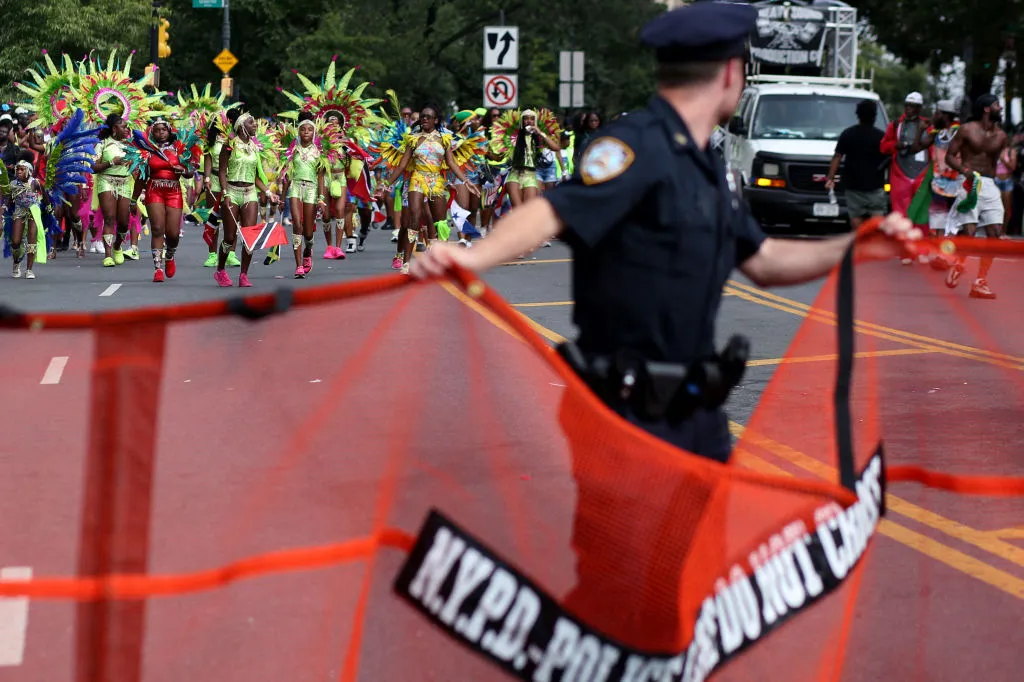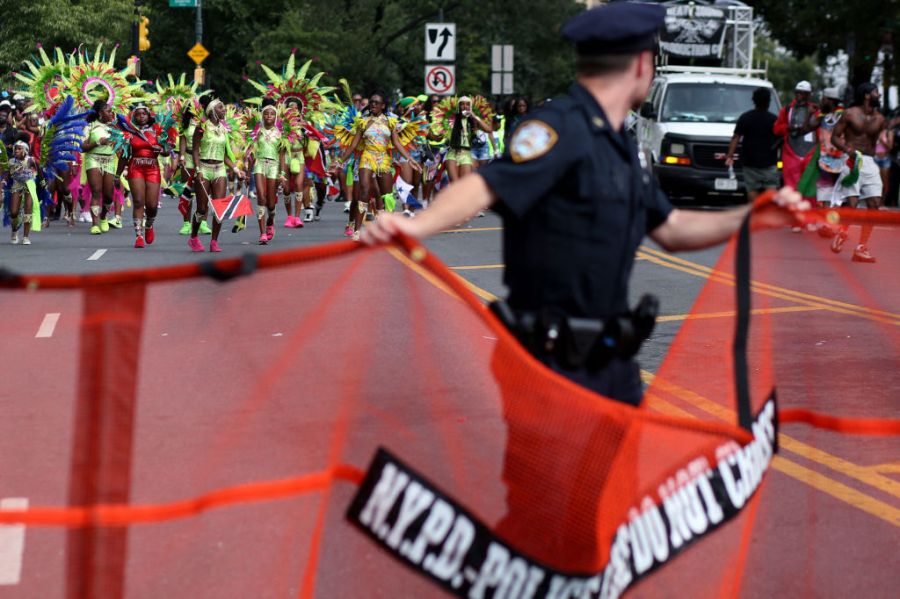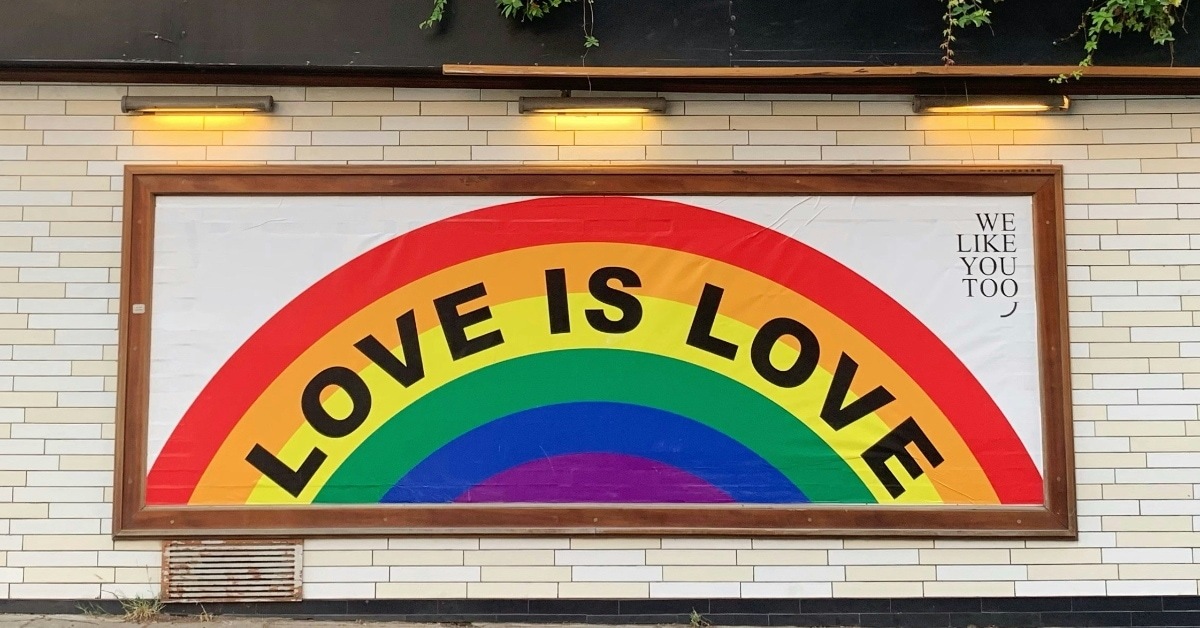Police drone use in NYC prompts questions about privacy, discrimination
The city’s police department ramped up drone use over the Labor Day weekend this year. Wardell Larson and his family The post Police drone use in NYC prompts questions about privacy, discrimination appeared first on TheGrio.

The city’s police department ramped up drone use over the Labor Day weekend this year.
Wardell Larson and his family always look forward to Labor Day weekend in Brooklyn. This recent one was much of the same: A barbecue on the block, music and a lot of laughter.
Larson though, found himself peeking up in the sky several times to see if a police surveillance drone hovered over him and his family. “It just had us a little on edge, I told everyone not to be too loud so the police wouldn’t think we were doing anything wrong,” Larson told theGrio.
When the NYPD announced that surveillance drones would monitor holiday weekend festivities in certain areas, critics quickly condemned the decision as racially discriminatory. While the use of advanced tech becoming more popular for hundreds of police departments, experts and advocates believe that it can potentially be damaging to the Black community.

“It’s not surprising to see law enforcement get more comfortable with using various technologies,” Dr. Jeffrey Butts, a professor at John Jay College in New York City said. “The concern about law enforcement would be the fairness of equity with which they use those technologies.”
As part of a pilot program, the NYPD used unmanned drones to monitor larger gatherings over Labor Day weekend, including the West Indian American Day Parade and J’Ouvert festival in Brooklyn, where thousands of people attend. In the past, J’Ouvert has been marred by violence. In 2020, four people were shot during J’Ouvert. Back in 2015 a gubernatorial aide was shot and killed at the event. Along with the drones, the police increased their presence around the festivities this year.
Despite the concerns of violence, the weekend went by in relative peace. No violence occurred at the J’Ouvert festival — which takes place in the early morning hours before the actual parade. Two people were shot during the parade but the injuries weren’t life-threatening.
“The New York City police department smoothly handled the influx of activities,” Mayor Eric Adams said at a press conference on Tuesday. “This was one of the safest J’Ouvert celebrations and Labor Day weekends we have seen in recent memories and probably the safest J’Ouvert celebration in history.”
Attendants felt the same. Malik Steele goes to J’Ouvert and the parade every year. “There was always a shooting or a knife fight or [something] but the last couple years it’s been chill,” Steele said. “When you know the police [are] around, you think and act different.”
Mayor Adams said the use of the drones was a success and complimented some of the actions of the officers from live footage that he watched as the parade went on.
Some community members also felt safer knowing that the police could keep an eye on things without sending a bunch of officers somewhere they weren’t needed. “As long as [the police] didn’t just break up a bunch of parties, a drone isn’t that big of a deal,” Belinda Owen, a Brooklyn resident who lives near the parade route said.
The NYPD did not respond to multiple requests for comment on how the drones were used. Instead, the NYPD referred theGrio to the Tuesday press conference that authorities did after Labor Day Weekend.
There are still concerns about law enforcement using technology to monitor and track communities, especially in Black neighborhoods.
“Pervasive drone surveillance can be easily misused to exploit and discriminate against New Yorkers, putting all of our privacy at risk,” The NYC ACLU said in a statement. “As the NYPD keeps deploying these dystopian technologies, we must push for stricter guardrails — especially given the department’s lengthy history of surveilling and policing Black and brown communities.”
Some experts question just how far the use will go. “What happens when someone says it’ll be helpful for us to arm [these drones],” Butts asked. “What are we going to say when someone proposes that?”
It’s already difficult to hold the police accountable when they abuse their power, experts say. With the advancement of technology, if someone is harmed as a result of new technology, it could be even harder for the police to be held responsible since an actual police officer wouldn’t be the one who did anything wrong.
Police departments across the country have dabbled with newer technology to do their jobs. In some cases, it drew controversy. The Chicago Police Department used a facial recognition program that scanned social media photos in 2020. They quickly dropped it after the ACLU filed a lawsuit.
The LAPD approved the use of a robotic police dog earlier this year, even though members of the city council pushed back against it. Many police departments now use license plate readers to help identify crime suspects.
Since there are already significant racial disparities in how Black communities are policed (like traffic and street stops), the fear is that this technology will just do more of the same. “We have to trust that law enforcement is using these in an even and fair way,” Professor Butts said.
Wardell Larson and his family still enjoyed their cookout. He just hopes the drones don’t become a mainstay when Black people are out celebrating in their neighborhoods. “It’s one thing to have cops on the block,” Larson said. “Something about a drone flying over you and watching you with your family feels wrong.”
TheGrio is FREE on your TV via Apple TV, Amazon Fire, Roku and Android TV. Also, please download theGrio mobile apps today!
The post Police drone use in NYC prompts questions about privacy, discrimination appeared first on TheGrio.












